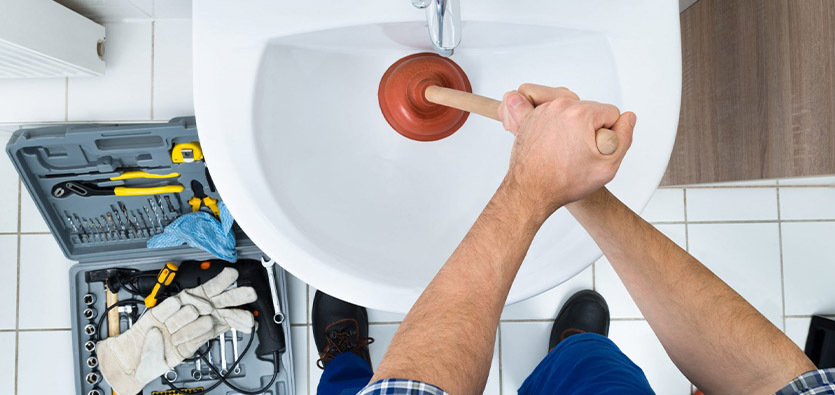
Plumbing is one of the trickiest and least anticipated parts of homeownership. It is an important, integral part of your home, and maintaining it can be frustrating. However, it can ensure a comfortable living environment for you and your loved ones when done right. Often, problems occur when the cause is not visible or noticeable at the initial stages. You may have to guess the source of the issue, and even then, it won’t guarantee a solution. Your best option is to call a local plumbing company for help.
The most common home plumbing problems include dripping faucets, leaky pipes and toilets, and clogged toilets and drains. You may be tempted to use household plumbing hacks suggested by your family or friends or on the internet. However, with little to no knowledge of the plumbing system, these seemingly harmless remedies can be very dangerous to your homes’ piping. It can also lead to an adverse impact on your finances in the long run.
Many plumbing-related myths have been passed on from one generation to another. For instance, some people believe that pouring down vinegar, lemon, and baking soda might help unclog a drain. These remedies are not only dangerous, but also you cannot guarantee that they’ll actually work. In case of any plumbing issue, the sensible and responsible thing to do is to call in a plumber to avoid financial losses and potential damage to your plumbing system.
In this blog, we debunk some of the common myths which burn a hole in your pocket for no reason.
Lemon Freshens Your Drains
You might have heard about how squeezing a lemon into your bathroom or kitchen drain can rid your sink of bad odors and freshen it up for a couple of days. But, this won’t clean, unclog, or protect your drains. In reality, pouring an excessive amount of lemon juice into your drain can corrode your plumbing pipes due to the citric acid in them. This can eventually lead to rust, holes, leaks, cracks, or even burst your pipes.
Therefore, we recommend avoiding any use of citrus juices in your bathroom or kitchen drains to prevent pipe corrosion. Make sure you carry out frequent maintenance of your homes’ plumbing. If you notice a bad odor coming from your drains, have a licensed plumber check your drains immediately.
Anything Can Be Flushed In A Toilet Bowl
It is a common misconception among many people that their toilet bowl is an all-flushing bowl. Even if it had a wide-mouthed outlet, this does not mean that you can flush just about anything through it. Pouring anything down your toilet and bathrooms’ plumbing system can clog it. You will have to cough up a lot of money to get a clogged toilet drain fixed.
Therefore, you must avoid flushing down the following items in your toilet bowl:
- Paper towels
- Makeup
- Cotton swabs
- Diapers
- Feminine hygiene items
- Grease
- Oil
- Hair
- Coffee grounds
Feminine hygiene items, hair stands, paper towels, and makeup should be disposed of in trash cans to avoid clogging your toilets’ drains. Although some baby products such as wipes are labeled flushable, you should still avoid flushing them down your toilet as they don’t decompose or break down in the water.
Drain Cleaners Clear Clogs Efficiently
You might have heard about the miracles of drain cleaners at least once in your life, like how quickly they can unclog your sink or drain. This is far from the truth because these drain cleaners contain certain ingredients that are harmful and damaging to your plumbings’ pipes. While these chemicals can unclog minor clogs, these are in no way capable of handling major plumbing issues and must be avoided.
Using drain cleaners for short-term fixes will mask the underlying, long-term plumbing issue that needs immediate attention. You can use them to buy dome time until a professional plumber can come to inspect and fix the underlying issue.
If you have a plumbing emergency on your hands or need to get your plumbing system fixed before this summer season, Dunn Rite Plumbing’s expert plumbers can help you out. Click here to get in touch with us for quick plumbing repairs, inspections, and replacement projects.